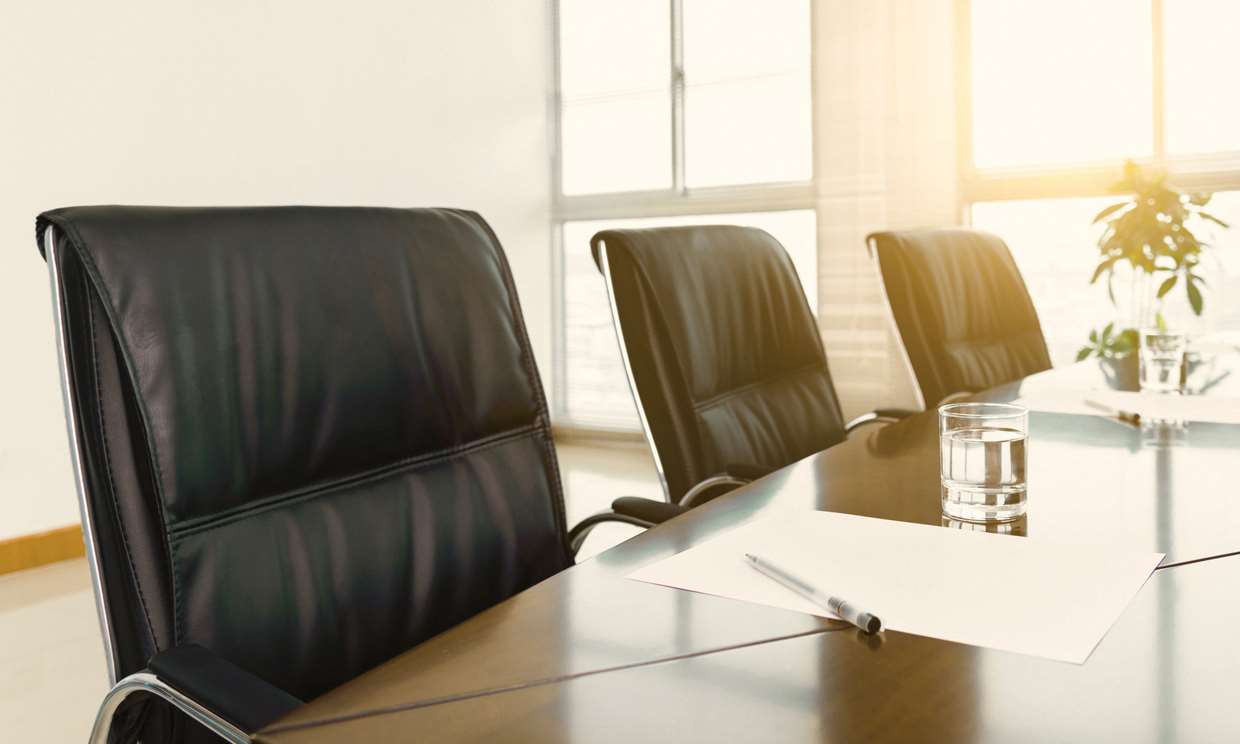Letter to the Shareholders
The Arbonia Group (Arbonia) looks back on a financial year 2022 that was both challenging but also successful as well. The end of the COVID-19 pandemic and the subsequent Russian invasion of Ukraine led to sharp increases in raw material and logistics costs as well as to greatly increasing energy prices, in addition to problems in all supply chains, which strained the already difficult situation of the construction industry. This crisis and the accompanying need for a change in thinking concerning energy dependency has confirmed Arbonia’s strategy of focusing on modern products for energy-efficient and self-sufficient buildings. In addition to their well-known economic and environmental advantages, these products are accelerating the transition towards households that do not depend on fossil energy sources and prices. At the same time, the investments decided and made in the past are now paying off and enabling a counter to the cost inflation and the material price increases with increases in productivity.
Dear Share Holders
Dear Ladies and Gentlemen
The financial year 2022 was marked by a large number of macroeconomic challenges, such as the sharp increase in material, energy, and logistics costs, a shortage of raw materials and skilled workers, increased interest rates, as well as a strong appreciation of the Swiss franc. The existing problems in the global supply chains were also intensified by the war in Ukraine. In addition, up to mid-2022, many customers built up high inventories due to the threat of material shortages and a fear of further increasing prices. Starting in the middle of 2022, when a decrease in the availability problems combined with falling material prices, a massive destocking started at all important customers, which reached its peak in the fourth quarter of 2022. This massive, unexpected volume decrease in the fourth quarter, especially with radiators and shower enclosures, had a considerable negative impact on the margin, contrary to the usual strong second half-year in the construction sector. However, the growth businesses (heat pumps, ventilation equipment, underfloor heating, battery storage) that had been strategically built up in the past years developed positively with a high double-digit volume growth, exceeding expactations and having a compensating effect.
The already existing pressure to use energy-efficient heating and ventilation products in residential and commercial construction, which is supported by the subsidy programmes of European countries among other things, has experienced an additional boost from the start of the war in Ukraine and the associated supply uncertainty with fossil fuels. The search for a reliable energy and heat supply without fossil fuels as well as the desire for energy self-sufficiency has now become a guiding motive for the demand these products. For this reason, these product groups (above all heat pumps, ventilation systems, and underfloor heating) have high double-digit growth rates. The new production plant for heat pumps in Opočno (CZ), which began production in the middle of 2022, therefore came at the right time and will have high double-digit growth rates for volume and revenue in the future. On the whole, the availability of raw materials and intermediate products has improved, but the situation remains difficult for critical components and semiconductors.
As a result, Arbonia was able to increase revenue in the financial year 2022 to CHF 1 202.1 million; growth was 5.5% without the influence of currency and acquisition effects (organic). EBITDA without one-time effects fell from CHF 134.3 million to CHF 112.4 million; with one-time effects, the EBITDA reached CHF 108.3 million compared to CHF 124.7 million in the previous year. This corresponds to a declining EBITDA margin (without one-time effects) from 11.3% in the previous year to 9.4%; with one-time effects, the EBITDA margin fell from 10.5% to 9.0%. As a result, EBIT without one-time effects fell from CHF 67.0 million to CHF 41.4 million; with one-time effects, EBIT fell from CHF 53.3 million to CHF 37.0 million. This corresponds to a decrease in the EBIT margin without one-time effects from 5.6% to 3.4%; with one-time effects, the EBIT margin fell from 4.5% to 3.1%. The group result with one-time effects fell as a result from CHF 27.5 million in the previous year to CHF 20.7 million. Without one-time effects, the group result fell from CHF 41.1 million to CHF 23.9 million.
Market environment 2022
The demand for housing remains extremely high especially in Germany and in metropolitan areas in general throughout Europe. The demand in renovation, which has remained strong due to the previously described effects and now absorbs freed tradespeople capacities, should also be emphasized. In general, the forecasts for the development of the construction industry in the various markets of Arbonia are characterised by the described difficulties and the general economic uncertainty in the short term and are mainly dependent on the general economic development.
The development of the construction industry in Germany, Arbonia’s largest market, is greatly dependent on the development in new construction and renovation of residential buildings. In the current economic environment, the demand for single-family homes has decreased due to the interest rate and construction cost situation, while there has been a stable development with multi-family homes, which has been marked by material and capacity shortages, however. The last described segment, in which there is still a large backlog of approved but not yet started buildings, is therefore expected to develop positively over the long term. Above all, the positive development in the renovation of the existing and energy-inefficient buidling stock is expected to continue in the coming years, regardless of the economic situation.
In Switzerland, a stable, slightly positive trend is expected in residential construction as well as in renovation in the medium term, since the order books of craftsmen are still filling up. Furthermore, the energy prices are also acting as a motivator here to drive energy-related renovations. The demand for housing in metropolitan areas is also growing in Switzerland. In other building construction, above all the construction of buildings for education and health should also develop positively as in 2022, while many large office complexes such as "The Circle" have either been completed or are near completion.
Due to the decreasing building permits in residential construction, the decreased availability of mortgages (increase in construction costs and interest rates), as well as the generally uncertain economic situation due to the geographic proximity to Ukraine, among other things, a declining trend in new construction i is expected to continue for residential buildings as well as in other buildings in the Eastern European markets of Poland and the Czech Republic in 2023. Renovations, which have only been growing slightly so far, should increase further due to high energy prices and the shift away from fossil energy sources, however. A more significant recovery is hampered by the shortage of skilled workers in construction, because this is dependent on foreign, usually Ukrainian workers, in both countries.
In the target markets of Arbonia in Southern Europe (Italy, Spain, and Portugal) primarily residential construction grew again in the past financial year. This was driven by the "superbonus" (110% government subsidy for renovations in Italy) as well as a healthy demand for living space. Even though the superbonus expired in September 2022 and the speed of construction has recently slowed down in Spain and Portugal, these markets will be supported in the medium term by the high unsatisfied demand for living space on the one hand and by an announced follow-up programme on the other. The construction of new housing should develop robustly in the future due to interest rates that are only slowly increasing (in Spain) as well as rents that greatly increased in 2022 (in Portugal). Outside of residential construction, particularly the new construction of other buildings, with the exception of logistics properties, are expected to decrease due to the economic situation. Renovations due to high energy prices or reconstruction (e.g. after the flood in central Italy) as well as the continuing superbonus for offices and other commercial buildings should generally support these sectors, however. With the acquisition of the Portuguese HVAC distribution company Cirelius, Arbonia is further strengthening its position on the Iberian Peninsula.
Strategy and development of Arbonia
Both the Heating, Ventilation and Air Conditioning (HVAC) Division and the Doors Division of Arbonia are continuing their independent strategic development and are specifically concentrating their operational measures on the megatrends of energy efficiency, urbanisation, digitisation and automation. Detailed information on the development of both divisions can be found in the respective reports starting on page 9 of this annual report.
Heating, Ventilation and Air Conditioning Division
As a result of the HVAC Division’s traditionally strong market position in Eastern Europe, the geopolitical situation resulting from the war in Ukraine had a significant impact on operating activities. In Western and Central Europe, enormous price increases in construction costs and massive destocking at specialist retailers and wholesalers in the fourth quarter led to a noticeable business deterioration particularly with stockable products such as steel panel and bathroom radiators. As a result of the inadequate capacity utilisation of individual plants, capacities sometimes had to be adjusted; this was primarily achieved by using the available flexibility options. The announced relocation and closure of the Dutch Tubbergen plant at the end of the year went according to plan.
However, the demand for energy-efficient products and solutions remained high in the reporting year, so that growth products such as heat pumps, ventilation systems including fan coils and underfloor heating systems still showed high double-digit growth rates. In summer 2022, the new heat pump plant in Opočno (CZ) with a capacity of 15 000 heat pumps per year was completed and commissioned according to plan. The production relocation from the previous location in Dobré (CZ) was carried out successfully while a very high capacity utilisation was ensured at the same time. The production capacities for the year 2023 have already been exhausted by the demand of existing customers. The plans for the next capacity expansion to 30 000 units per year in 2024 are already proceeding at full speed. The battery storage based on the ecologically sustainable redox flow technology has also been generating a high demand since its launch in the summer of the reporting year, which is why the production has already been relocated to the existing production plant in Stříbro (CZ).
Doors Division
The retail business of the Doors Division suffered from various factors during the reporting year and therefore recorded a decrease. Among other things, warehouse stocks at distributors were reduced more strongly than in past years. Another factor is that the retail business is geared to single-family homes, among other things, whose construction was increasingly postponed or halted. This decline was less marked in in the project business. This led to a shift from standard doors to functional doors, which was partially able to offset the decline in the retail business. The division used this positive momentum to expand its own business in Germany and Switzerland and entered further partnerships with hotel chains and housing co-operatives in the reporting year. These partnerships are also a good example of the distribution synergies between the Wood Solutions Business Unit and the Glass Solutions Business Unit, making it possible to offer an extensive portfolio of wooden and glass doors. The acquisition of the German company joro türen GmbH in the reporting year, which specialises in the manufacture of special doors for protection against fire, smoke, noise, and intruders for large-scale projects, increases access to the contractor services business in Germany and Switzerland.
The market for sanitary products suffered a strong decline in the reporting year. On the one hand, this is due to postponement or halting of new construction projects. Many renovation projects were either implemented during the Corona period, or builders are currently still waiting due to the price increases. On the other hand, installers continue to focus on the more lucrative installation of subsidised HVAC products. The Glass Solutions Business Unit also suffered more from the high energy prices than the Wood Solutions Business Unit. This is because the production of raw glass is very energy-intensive, which therefore made glass products even more expensive.
Intensification of sustainability
With the past reporting year, Arbonia has further created the conditions for combining financial and non-financial targets in its strategy. An important tool for this is a suitable incentive system for the management. For this reason, it was decided to integrate sustainability criteria such as effective climate protection in the variable compensation of Group Management starting in financial year 2023.
An important factor for better climate protection is above all the expansion of renewable energies. In this regard, Arbonia was able to improve further compared to the previous year and now covers 47% of its total electricity requirement of around 100 million MWh per year with regenerative sources. The share of green energy has increased to 43%, whereby 13% is now supplied from in-house electricity production from photovoltaics, CHP systems and a wind power generator. As a result, the greenhouse gas intensity has decreased further to 0.050 CO2 equivalents (Scope 1– 2) per net revenue. This increase in self-generated power is also a pillar of Arbonia’s economic success in the coming years, since it makes the company more independent of energy price increases. A share of 40% as of 2026 is being pursued.
The long-term strategy is based on the principle of an integrated CO2-free system, with which energy can be efficiently generated, transferred and stored. For this purpose, Arbonia is investing in state-of-the-art systems for combined heat and power (CHP), for example. In Opočno and Stříbro, Czech Republic, modern energy standards have been taken into account in the new construction of a heat pump plant and in the investment in compressors so that production sites can be operated practically energy-neutral.
In addition to its own greenhouse gas emissions, Arbonia would also like to take indirect emissions more strongly into account in its results. It has therefore developed initial approaches to ascertaining the emissions of its upstream and downstream value chain (Scope 3). It will use these measurements to derive reduction targets and corresponding measures.
Outlook
The existing challenges for the development of the construction industry, such as sharply increased interest rates and the high material costs will not be disappearing in the coming financial year. However, Arbonia has positioned itself very well for these demanding times. After all, as the will to stop using fossil fuels increases, so does the demand for energy-efficient products. In Germany, for example, nearly double the number of applications for funding specialist planning and construction support for energy-efficient renovation of residential buildings were submitted in 2022 as in the previous year. Heat pumps are one of the products that is well suited for this purpose, since no oil or gas is burned on the one hand and this type of heat generation is considerably more efficient on the other. Arbonia has anticipated this trend. The production volume of the new production plant planned for 2023 is already sold out. To meet the enormous demand for this product, Arbonia has also already decided to double the capacity. Arbonia is expanding its manufacturing capacity in the mid-term in the following efficient heat distribution as well, specifically in the production of pipes for underfloor heating. The new redox flow battery storage of Arbonia, which was introduced to the market in the middle of 2022, is already experiencing a very high demand and 30% of the annual production for 2023 is also already sold out.
These and other products of Arbonia are suitable for renovation as well as new construction. Although experts expect a decline in new construction activity on the whole in the current financial year, particularly in residential construction which is important to Arbonia, the construction backlog (approved homes that are waiting for the start of construction) has simultaneously increased to around 850 000 flats in Germany in the past years. For comparison: In 2021, fewer than 300 000 new homes were built. In addition, commercial landlords in particular are carrying out energy-efficient renovation in order to decrease ancillary costs for tenants considerably so that they will be able to increase rents at all in the future. Furthermore, the subsidy programme in Germany is now tailored to energy-efficient renovation instead of new construction as before. Together with the climate targets of the commercial landlords and the extension of CO2 pricing to landlords in general, this should ensure a considerable expansion of renovation activities. This also holds true for the Doors Division, since energy efficiency can be increased here especially by replacing home entrance doors. Furthermore, many doors have since reached the end of their approximately 30-year life cycle and should be replaced. Arbonia therefore continues to expect that a supercycle, in which around 12 million doors were installed per year (in Germany) the last time after the fall of the Berlin wall, will reach another peak again in the next few years.
In particular the high influx of people caused by Russia’s invasion of Ukraine exerts pressure on the already very tense housing market, especially in Germany but also in the neighbouring countries. In Germany, the housing shortage had reached the amount of approximately 700 000 flats at the end of 2022. There is also the growing demand for 1– 2 person households, especially in the metropolitan areas, coupled with a continually increasing living space per person. Arbonia believes that the federal and state governments are obligated to act here in order to avoid a disastrous situation in the housing market.
The year 2023 will remain a year of challenges, since the time horizon for the end of the war in Ukraine as well as falling inflation and interest rates cannot be estimated. On a more positive note, the increase in material prices and the supply bottle necks have been declining.
However, Arbonia’s positioning as a highly efficient manufacturer of doors and radiators as well as a supplier of energy-efficient growth products make it well set for the future, which is why the medium-term targets published in October 2021 remain valid.


